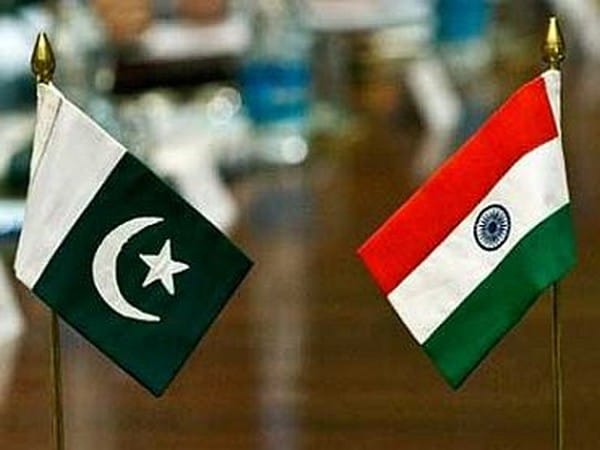New Delhi: Any attempt to divert the flow of water to Pakistan under the Indus Waters Treaty would be considered an “act of war”, Pakistan declared Thursday, adding that it “shall exercise the right to hold all bilateral agreements with India, including but not limited to Simla Agreement, in abeyance”.
Pakistan announced a raft of tit for tat diplomatic measures in response to India’s series of punitive actions—including the suspension of the Indus Waters Treaty 1960—declared Wednesday evening after a meeting of the Cabinet Committee on Security (CCS) on the Pahalgam terrorist attack in which 25 tourists and a local were killed on 22 April.
Pakistan’s National Security Council, the country’s top civil-military forum chaired by Prime Minister Shehbaz Sharif, met Thursday to discuss the matter.
After the meeting, the Prime Minister’s Office (PMO) issued a statement that the Pahalgam attack was a result of “systemic oppression, demographic engineering, and denial of rights” in the region. Linking Pakistan to the incident in the absence of any credible evidence is “devoid of logic”, it said.
In its diplomatic retaliation, Pakistan declared the closure of its airspace to Indian-owned and operated airlines, expelled Indian military, naval, and air advisers from its High Commission in Islamabad, reduced the strength of India’s diplomatic staff in Islamabad to 30 members and revoked all SAARC Visa Exemption Scheme (SVES) visas for Indian nationals.
It also closed the Wagah border crossing—the main transit point between the two countries—and suspended all trade with India, including via third countries.
On India suspending the Indus Waters Treaty, the NSC said, “Any attempt to stop or divert the flow of water belonging to Pakistan under the Indus Waters Treaty, and the usurpation of the rights of lower riparians, will be considered an Act of War,” the National Security Council (NSC).
Pakistan would respond “with full force across the complete spectrum of national power” to any violation of its riparian rights, it said.
Accusing India of exhibiting “reckless” disregard for international law and “fomenting terrorism,” Pakistan also said it may put in abeyance the 1972 Simla Agreement, until New Delhi changes course.
The Simla Agreement established the Line of Control (LoC) as the de facto military line between the two countries. It has been historically respected by both sides, even during conflicts such as the 1984 Siachen or the 1999 Kargil war.
The NSC also said India’s actions had “vindicated the Two-Nation Theory—the ideological basis for Pakistan’s creation. It also alleged a systemic marginalisation of Muslims in India and railed against “unilateral steps” taken by the Indian government in Kashmir, an apparent reference to the revocation of the operative provisions of Article 370.
Calling India’s response to the Pahalgam attack “unilateral, unjust, politically motivated, extremely irresponsible and devoid of legal merit,” Pakistan rejected any suggestion of cross-border involvement in the killings of tourists in Kashmir.
Treaty retaliation and diplomatic fallout
The NSC said India’s move to freeze the Indus Waters Treaty was a “reckless and unlawful” violation of an international agreement that cannot be unilaterally revoked. The committee said India’s actions were driven by domestic political calculations and posed a direct threat to regional peace and stability.
Pakistan also declared the closure of the Wagah border crossing—the main transit point between the two countries—and suspended all trade with India, including via third countries. These significant moves symbolise a near-complete rupture in bilateral ties as India has already announced the closure of the Attari land route.
Pakistan’s airspace was declared to be closed to Indian-owned and operated airlines, further escalating the standoff. “These measures are necessary to safeguard Pakistan’s sovereignty, dignity, and the rights of its people,” the NSC said.
In the rapid series of retaliatory steps, Pakistan expelled Indian military, naval, and air advisors from its High Commission in Islamabad, giving them time until April 30 to leave.
In moves similar to India’s measures, it reduced the strength of India’s diplomatic staff in Islamabad to 30 members, revoked all SAARC Visa Exemption Scheme (SVES) visas for Indian nationals, except Sikh religious pilgrims. The SVES visa-holders were given 48 hours to exit Pakistan.
Kashmir and two-nation theory
The NSC statement also emphasised Pakistan’s longstanding position on Kashmir, and described the Pahalgam attack as a consequence of “systemic oppression, demographic engineering, and denial of rights” in the region.
It accused India of “using” the attack to deflect attention from its own “failures” in Jammu and Kashmir and put pressure on Pakistan along its eastern border.
“Attempts to link Pakistan to the Pahalgam incident, in the absence of any credible evidence, are devoid of logic and reflect a worn-out narrative,” the NSC said.
The committee also referred to domestic developments in India, including the passage of The Waqf (Amendment) Act, as “signs of increasing marginalisation” of Muslims.
“India must not use such tragedies (the Pahalgam incident) to further political goals,” it said.
The NSC closed its statement by invoking the Pakistan Resolution of 1940, saying recent developments had reinforced the rationale for Pakistan’s creation. “India’s actions today reaffirm the Two-Nation Theory and the vision of Quaid-e-Azam Muhammad Ali Jinnah.”
Citing cases such as the arrest of Indian naval officer Kulbhushan Jadhav, Pakistan reiterated its allegations of “Indian involvement” in sponsoring terrorism within its borders.
While reiterating its commitment to peace, Islamabad said any threat to its sovereignty would be met with “resolute and reciprocal” response — across diplomatic, military, and legal fronts.
(Edited by Ajeet Tiwari)






